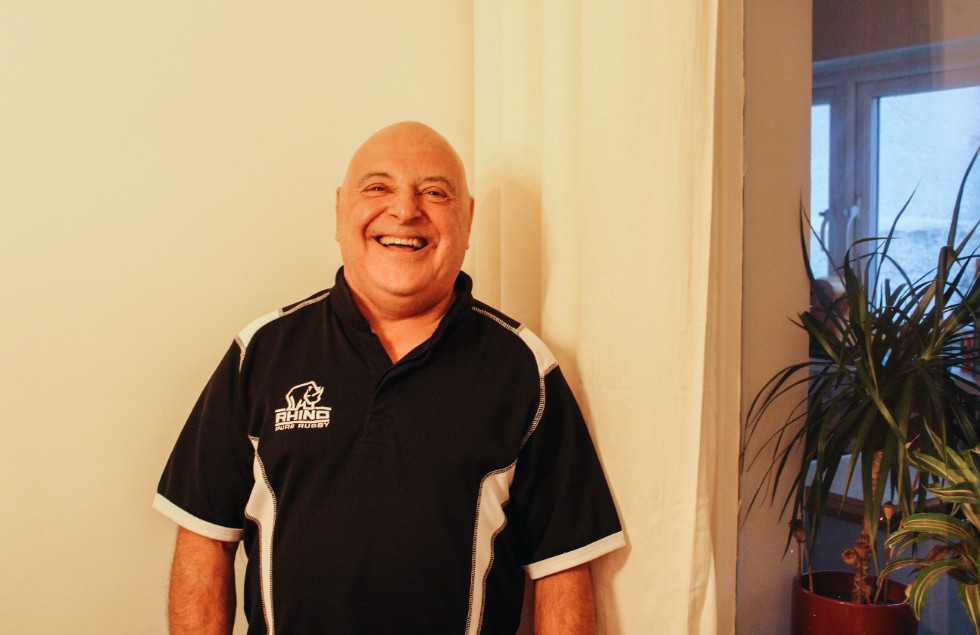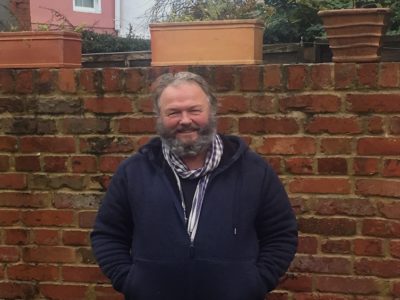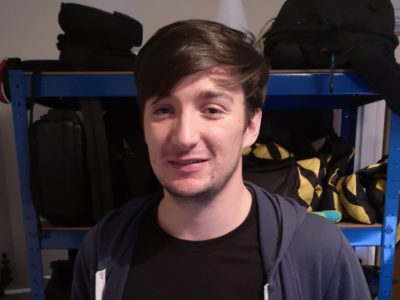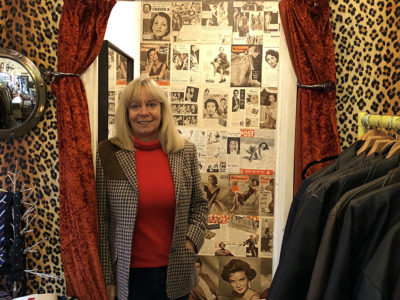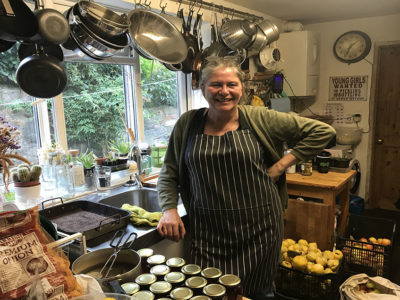A brief history on the surprisingly Welsh art of goshinkwai ryu yawara remmei
Goshinkwai is a self-defence art derived from ancient oriental fighting techniques. It began, of all places, in the valleys of South Wales.
Founders, Gordon and John Warfield, were born in Ebbw Vale in 1932 and 1934. In 1944, after being gifted books on judo for Christmas, the pair became fascinated with martial arts. They began training in judo and jiu-jitsu in Merthyr Tydfil, developing their own style of self-defence on the side.
In 1955, they came under the instruction of a respected Japanese Budo Master, Kenshiro Abbe. Abbe was impressed by the unique training style of the brothers. It was he who named their distinctive practise goshinkwai, translating to by way of body defence.
The brothers continued to run self-defence classes across Gwent and in 1988, Gordon Warfield was invited to apply for sokeship. This is the highest honour attainable within martial arts, awarded to those recognised as founding their own unique budo system. He became the first Soke Shodai of goshinkwai, one of only two sokes outside of the eastern world.
When Gordon died in 1993, the title of Soke Shodai was passed per tradition to his eldest daughter, Sian Warfield. To this day, she remains Soke Shodai of goshinkwai.
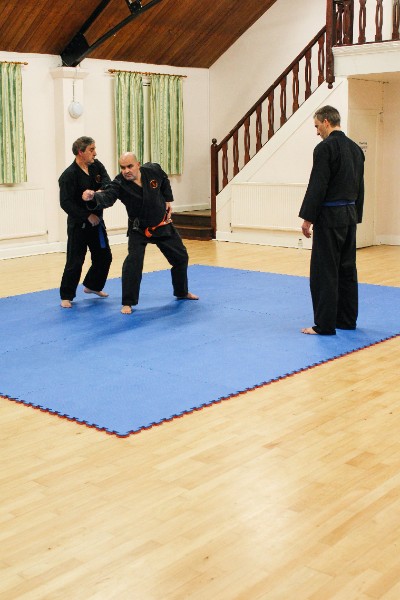
Current members of Pontypool Goshinkwai training in self-defence
Goshinkwai glossary
Aikido: A martial arts system of throwing, joint-locking, striking and pinning techniques paired with training in traditional weapons such as the sword, staff and knife
Budo: The Japanese term for martial arts
Dan: A grading system distinctive to judo, one of the highest qualifications available to individuals involved in martial arts
Goshinkwai: By way of body defence
Judo: A combat sport using the forces of balance, power and movement to subdue an opponent
Jiu-Jitsu: A defensive art, which uses joint locks, throws and strikes to defend from attacks
Remmei: Association
Ryu: School
Shihan: Technical advisor
Soke: Founder
Soke Shodai: First-in-command
Soke Dai: Second-in-command
Yawara: Ancient form of fighting
The shihan of Pontypool Goshinkwai discusses a 30-year legacy club and keeping samurai art alive in the valleys of South Wales
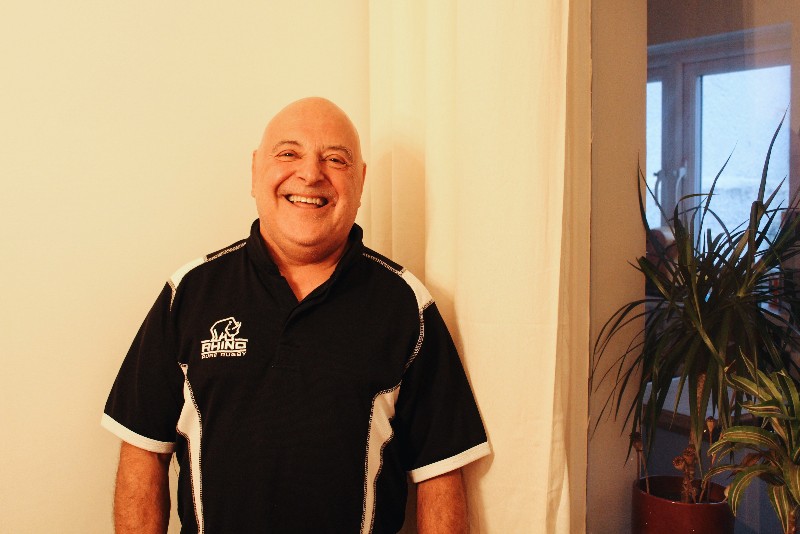
Every journey starts with the first step. In the kitchen of his home which he shares with his wife of 18 years, Barbara, Steven Rosser talks of his life-long obsession with martial arts. It’s a journey that led him to goshinkwai and the path continues to this day.
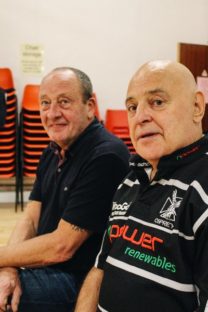
“All I can say is from the very first time I walked onto the mat, that was it. The feeling was right, like returning home,” he smiles, a hand gesturing around the steaming coffee cradled in the other. “It felt good then and that feeling is still there.”
How did a born-and-raised valleys lad come to find an ancient samurai art? “Well, comic books are to blame,” Steve laughs.
He was first introduced aged eight after reading instructions on jiu-jitsu moves in an issue of Commando. He began practising on his bed. “The old kind of bed,” says Steve. “Made from metal and springs.” His father, imagining destruction or injury, searched for a club his eager son could join.
“As luck would have it, my dad discovered a judo club at the factory where he worked,” he explains. Here began a 59-year affair with martial arts.
A life on the mat
Despite a few diversions – exploring judo and aikido before settling on goshinkwai ryu yawara remmei in 1984 – Steve has always returned to the mat. “I was fortunate to meet people who could feed my interest and guide me on the way,” he muses.
“I was fortunate to meet people who could feed my interest”
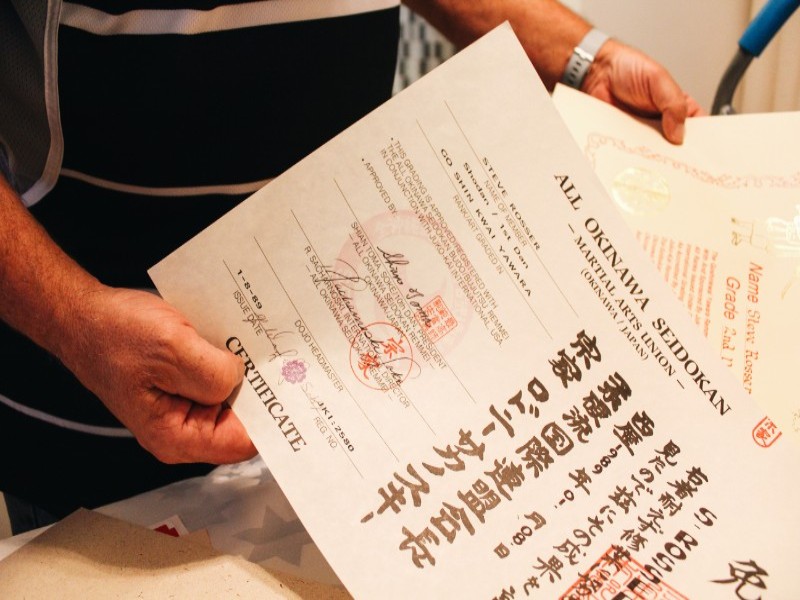
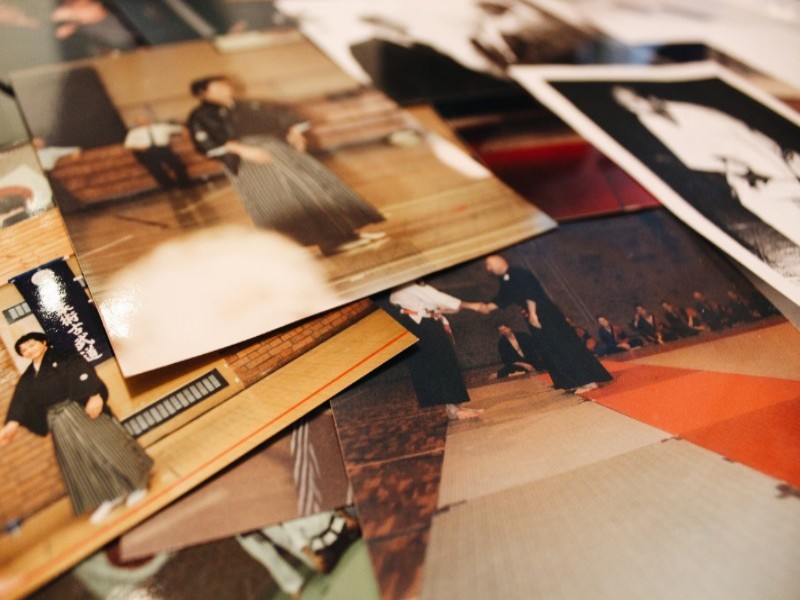
In 2007, Steve earned his seventh dan in goshinkwai, a martial art that uses grappling and footwork. This enabled him to instruct others in this form of self-defence derived from ancient techniques.
“I remember starting to teach was daunting for me,” says Steve. “I wasn’t used to the limelight.”
Yet, he grew into his leadership role and became shihan, or technical advisor, of Pontypool Goshinkwai Ryu Yawara Remmei in 2007.
“To be a caretaker of this legacy is almost a dream,” says Steve, eyes crinkling into a smile.
“You gotta kill your ego to be any good”
He demonstrates a few moves – a swipe to the jugular, a swift kick to the kneecap – with the grace of a dancer waltzing the floor.
“You gotta kill your ego to be any good,” says Steve. “A lot of people can’t do that because they are important to themselves.”
Keeping the legacy alive
As the goshinkwai club turns 30, where does Steve see himself – and it – in 10 years? “Well,” he thinks. “In 10 years, I’ll be 77. How long should I continue to train before I step aside and let the youth take over? A tricky question. It would be a huge gap in my life.”
Steve is less sure of what the future holds for the club. Unfortunately, attendance has declined with three to five regular members attending twice-weekly classes. Steve remains hopeful it can be sustained for another generation.
He takes a final sip of his coffee, pausing a while. “Our name ends in ryu. In the olden days, a ryu consisted of a master and a student. Like a family,” he says. “The bonus of a small class is that individual strengths and weaknesses can be catered for and progress is almost guaranteed.”
Steve places his empty cup onto the kitchen counter. “No-one knows what the future holds but for our small band of brothers, the sun is shining.”
A brief history on the surprisingly Welsh art of goshinkwai ryu yawara remmei
Goshinkwai is a self-defence art derived from ancient oriental fighting techniques. It began, of all places, in the valleys of South Wales.
Founders, Gordon and John Warfield, were born in Ebbw Vale in 1932 and 1934. In 1944, after being gifted books on judo for Christmas, the pair became fascinated with martial arts. They began training in judo and jiu-jitsu in Merthyr Tydfil, developing their own style of self-defence on the side.
In 1955, they came under the instruction of a respected Japanese Budo Master, Kenshiro Abbe. Abbe was impressed by the unique training style of the brothers. It was he who named their distinctive practise goshinkwai, translating to by way of body defence.
The brothers continued to run self-defence classes across Gwent and in 1988, Gordon Warfield was invited to apply for sokeship. This is the highest honour attainable within martial arts, awarded to those recognised as founding their own unique budo system. He became the first Soke Shodai of goshinkwai, one of only two sokes outside of the eastern world.
When Gordon died in 1993, the title of Soke Shodai was passed per tradition to his eldest daughter, Sian Warfield. To this day, she remains Soke Shodai of goshinkwai.

Current members of Pontypool Goshinkwai training in self-defence
Goshinkwai glossary
Aikido: A martial arts system of throwing, joint-locking, striking and pinning techniques paired with training in traditional weapons such as the sword, staff and knife
Budo: The Japanese term for martial arts
Dan: A grading system distinctive to judo, one of the highest qualifications available to individuals involved in martial arts
Goshinkwai: By way of body defence
Judo: A combat sport using the forces of balance, power and movement to subdue an opponent
Jiu-Jitsu: A defensive art, which uses joint locks, throws and strikes to defend from attacks
Remmei: Association
Ryu: School
Shihan: Technical advisor
Soke: Founder
Soke Shodai: First-in-command
Soke Dai: Second-in-command
Yawara: Ancient form of fighting

